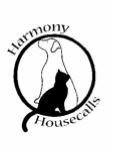End-of-life Care and Cancer
02/09/2014
This past fall and winter have seen more losses than most years for me. A few of my long-time patients died, and though of course every animal that I see is special and loved, these were ones that I had connected with in friendship with their families for a long time. Human lives were lost with the passing of my father-in-law this past year as well as a dear friend and client. Losses occur every year and sometimes we are more closely involved with them than others. Winter seems like the fitting time of year to take a moment to honor and remember these loved ones while balancing that by looking forward to the budding new life of spring. The circle of life continues on, as it should.
As many of you know, my housecall services include end-of-life care for animals including euthanasia, but also consultations in animal hospice and palliative care which supports human families in addition to quality of life during the animal’s last days. These preparations for the inevitable include discussions of animal and human losses past and future. Every loss we experience brings up memories, worries and concerns that are a constant reminder to cherish our loved ones, and in my world this very much includes our animal loved ones.
Two very special new friends that I met last fall were Randy and his border collie, May. May was diagnosed with cancer at ISU and given little time to live. I had the good fortune of meeting with her for five and a half months before her time came to journey on. My husband, Radford Davis- public health veterinarian/ documentary photographer- was able to take some photos for Randy while May was still feeling pretty good. I really feel like these photos and his words explain what I do with animal hospice and palliative care.
Here is a link to his photo session at radforddavis.com
Click here for more information on animal hospice and palliative care.
Cancer:
Many of these losses over the past year were due to cancer. So many factors are involved, from genetic to environmental influences that it can be overwhelming to think about trying to prevent it, and very often despite our best efforts, we cannot. Some are sudden, aggressive cancers with very little time to adjust to the idea, while others we are able to control or palliate for longer. Aside from specific surgery or chemotherapy referrals when that is a good choice, the best I am able to offer is palliation for pain, nausea or other discomforts, and herbal support with antioxidants and immune support to help the body fight the cancer or at least keep it at bay. When it is caught early, or is a slower-moving cancer, these supportive therapies do seem to help. These recent cases have me making sure my family and patients are getting plenty of fresh antioxidants in their food as well as slipping antioxidant and immune supportive herbs to them whenever I can. Of course you want to be careful and not overdo the herbs or vitamins, over-supplementation can be as bad as under-supplementation. If you are interested in a more detailed discussion on preventative care, please contact me. Here is a link on general preventative supplements to consider, especially as your animal ages.
As many of you know, my housecall services include end-of-life care for animals including euthanasia, but also consultations in animal hospice and palliative care which supports human families in addition to quality of life during the animal’s last days. These preparations for the inevitable include discussions of animal and human losses past and future. Every loss we experience brings up memories, worries and concerns that are a constant reminder to cherish our loved ones, and in my world this very much includes our animal loved ones.
Two very special new friends that I met last fall were Randy and his border collie, May. May was diagnosed with cancer at ISU and given little time to live. I had the good fortune of meeting with her for five and a half months before her time came to journey on. My husband, Radford Davis- public health veterinarian/ documentary photographer- was able to take some photos for Randy while May was still feeling pretty good. I really feel like these photos and his words explain what I do with animal hospice and palliative care.
Here is a link to his photo session at radforddavis.com
Click here for more information on animal hospice and palliative care.
Cancer:
Many of these losses over the past year were due to cancer. So many factors are involved, from genetic to environmental influences that it can be overwhelming to think about trying to prevent it, and very often despite our best efforts, we cannot. Some are sudden, aggressive cancers with very little time to adjust to the idea, while others we are able to control or palliate for longer. Aside from specific surgery or chemotherapy referrals when that is a good choice, the best I am able to offer is palliation for pain, nausea or other discomforts, and herbal support with antioxidants and immune support to help the body fight the cancer or at least keep it at bay. When it is caught early, or is a slower-moving cancer, these supportive therapies do seem to help. These recent cases have me making sure my family and patients are getting plenty of fresh antioxidants in their food as well as slipping antioxidant and immune supportive herbs to them whenever I can. Of course you want to be careful and not overdo the herbs or vitamins, over-supplementation can be as bad as under-supplementation. If you are interested in a more detailed discussion on preventative care, please contact me. Here is a link on general preventative supplements to consider, especially as your animal ages.
